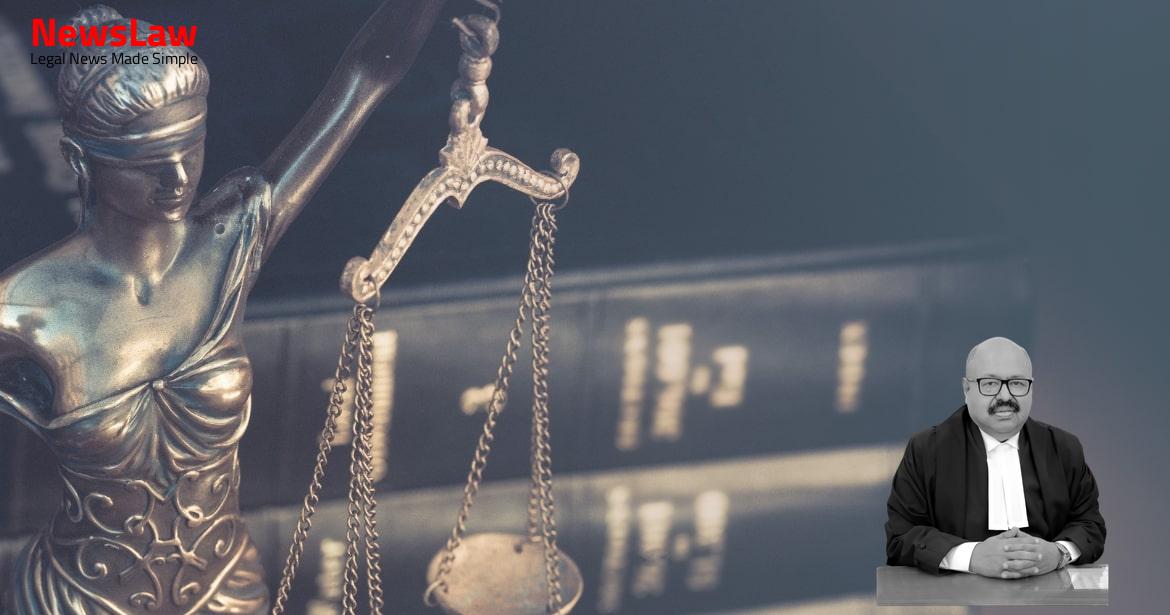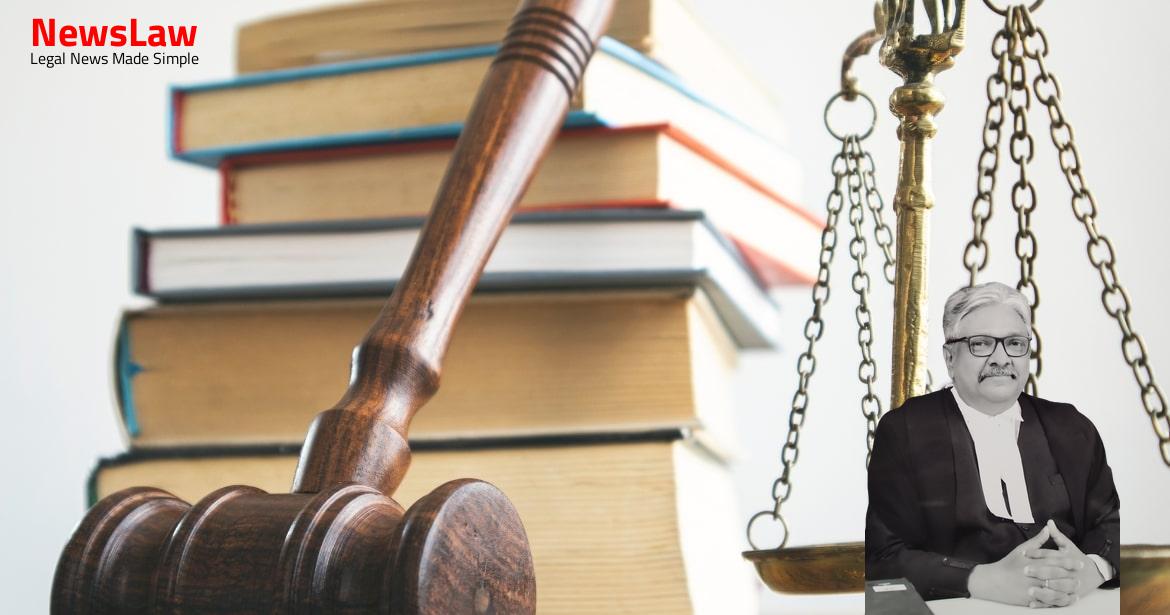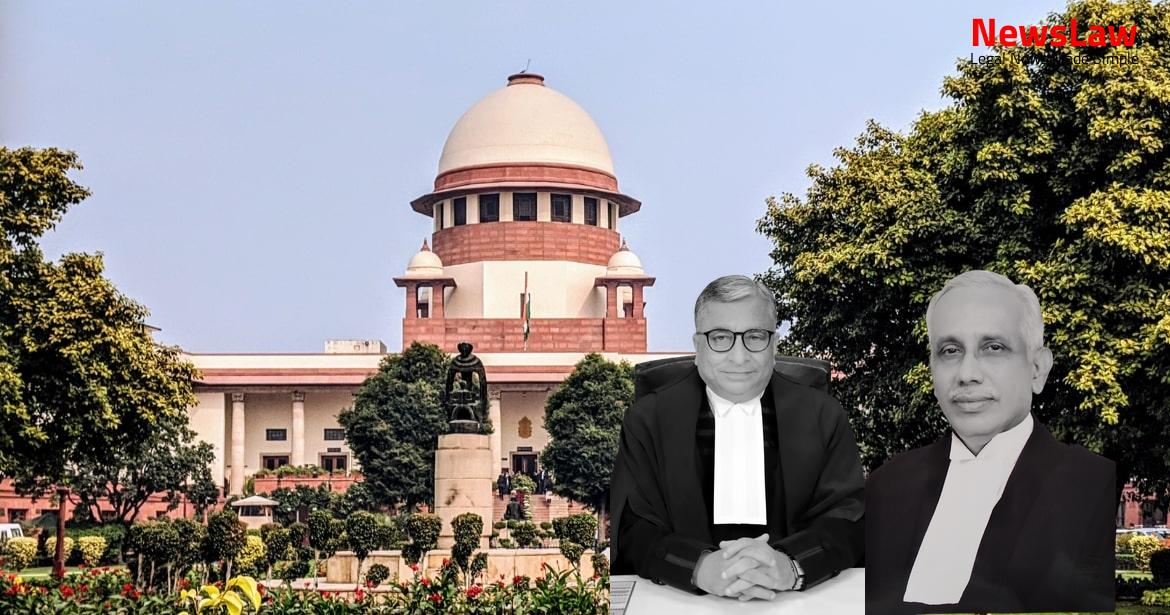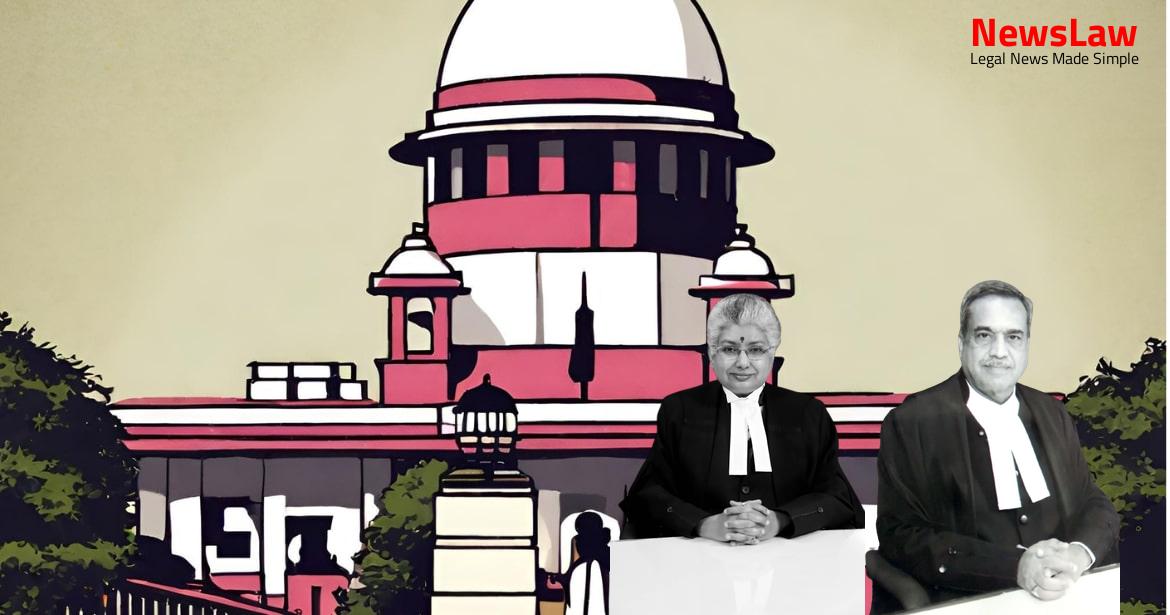In a recent landmark judgment, the Supreme Court of India analyzed the High Court’s intervention in disciplinary action in the case of State of Orissa v. [Respondent]. This case raises crucial questions about judicial review and the authority of disciplinary proceedings. Stay tuned to learn more about the legal intricacies involved in this case.
Facts
- The patient failed to respond to departmental notices sent by the disciplinary authority.
- The patient’s appeal was rejected on grounds of fair inquiry and justified penalty.
- The patient claimed mental ailment as a reason for not responding to notices sent to him.
- The patient presented a medical certificate dated 21.1.1998 from a Psychiatry specialist citing mental illness since 3.6.1991.
- The patient did not heed communications and refused to undergo medical examination as directed.
- The patient was found guilty in departmental proceedings due to non-participation.
- The patient was discharged from service on 30.12.1993.
- The patient attempted to resume duty with a medical certificate in 1998 but was not allowed.
- The patient failed to appear for medical assessment despite multiple directives.
- The patient was under treatment for Maniac Depression Psychosis following cerebral malaria.
- The patient did not provide any explanation during departmental proceedings and refused to accept notices sent to him.
- The Tribunal held that adequate reasonable opportunity was given to the delinquent and there were no procedural flaws in the departmental action.
- The Court observed a casual notion that patients suffering from cerebral malaria may develop mental illness, leading to the belief that the punishment was excessive.
- The High Court modified the punishment from discharge to compulsory retirement, considering the circumstances.
- The Tribunal determined that the case of the individual was not an exceptional one covered under Rule 72 of the Orissa Service Code, leading to the dismissal of the individual’s OA on 2.12.2010.
- The individual approached the High Court of Orissa with further details regarding his absence due to cerebral malaria during leave.
- The Commandant issued a second show-cause notice proposing dismissal, and upon no response, the individual was discharged.
Arguments
- High Court relied on the ratio in Rajinder Kumar v. State of Haryana & another to substitute the penalty
- Disciplinary authority should decide on the appropriate punishment based on the gravity of misconduct and its impact on the service
- Appellants argue that the High Court erred in applying a ratio from a dissimilar case
- The respondent’s mental condition during 1991 to 1998 is highlighted as a factor for not participating in disciplinary proceedings
Also Read: CRPF Act: Validity of Rule 27 for Compulsory Retirement – Case of Head Constable vs. CRPF
Analysis
- The Court did not consider the absence of the respondent before the CDMO to crosscheck his claimed mental illness.
- No leave exceeding five years is permissible unless deemed exceptional by the Government under Rule 72.
- The respondent did not present himself for a medical examination before the CDMO before being discharged in 1993.
- The Tribunal and the High Court found no issues with the disciplinary proceedings leading to the discharge in 1993.
- The Tribunal doubted the veracity of the medical certificate for the 1991-1998 period due to lack of supporting proof.
- Comparing with another case, where discharge was altered to compulsory retirement for a 37-day absence, the respondent was absent for seven years after a 9-day leave.
- The High Court intervention based on a medical certificate lacked support from contemporaneous medical records and was not from a treating doctor.
- The respondent’s absence without medical records was seen as irresponsible and indisciplined, and the specialist’s certificate was self-serving.
- The High Court should not have given weight to the specialist’s certificate without evidence of treatment from a psychiatric doctor.
- Government servants are not permitted to be on continuous leave for more than five years.
- If a government servant does not return to duty after being on leave for five years or is absent from duty after the expiry of the leave period for more than five years, they may be removed from service, unless there are exceptional circumstances.
- The removal from service process will follow the procedure laid down in the Orissa Civil Services (Classifications, Control and Appeal) Rules, 1962.
- Veracity of the self-serving medical certificate was rightly doubted by the Tribunal.
- The High Court should not have granted relief solely based on the medical certificate of a specialist who may not have personally treated the patient.
- The circumstances did not qualify as exceptional under the relevant provision.
- The High Court should not have interfered with disciplinary action and ordered a lesser penalty in the absence of relevant and contemporaneous medical records.
Also Read: DAMEPL vs. DMRC: Curative Petition and Arbitral Award Restoration
Decision
- The misconduct of the respondent was gravely overlooked
- The Tribunal’s decision to decline relief in O.A.1459(C)/2003 was rightful
- Unmerited intervention was made in the Tribunal’s decision
Case Title: THE STATE OF ODISHA Vs. SRI GANESH CHANDRA SAHOO (2020 INSC 29)
Case Number: C.A. No.-009514-009514 / 2019



